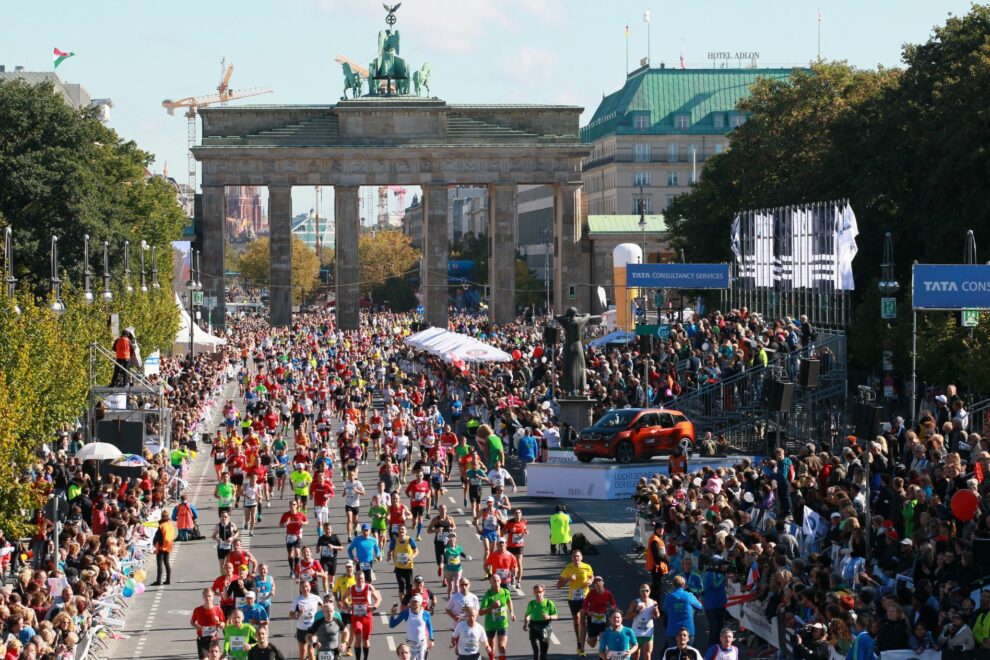Race History
A group of runners from one of Germany’s most prestigious athletics clubs, SC Charlottenburg, organized the first BERLIN-MARATHON in 1974. It was not until 1981 that the race moved from the Grunewald (a big forest) into the city center of West Berlin.
Supported by the three western allied forces (Britain, France and USA) it quickly developed into Germany’s biggest and best quality marathon.
It was after the Berlin Wall collapsed in November 1989 when a new era started. On September 30, 1990, three days before reunification, the course of the Berlin Marathon led through Brandenburg Gate and both parts of Berlin.
In 2001 Naoko Takahashi became the first woman to break the 2:20 barrier in Berlin. The flat and fast loop course then was changed significantly for the 2003 race. Paul Tergat became the first man to cross the new finish line when he ran a world record of 2:04:55, passing through Brandenburg Gate – the symbol for reunification.
In 2007 and 2008 Haile Gebrselassie broke that record, first lowering it to 2:04:26 and then to 2:03:59, the first sub-2:04 time ever. In 2011, Patrick Makau reclaimed the record for Kenya, finishing in 2:03:38, only to be eclipsed two years in a row by his compatriots Wilson Kipsang, who clocked 2:03:23 in 2013, and Dennis Kimetto, who ran a barrier-breaking 2:02:57 in 2014. In 2018, that mark was erased by Eliud Kipchoge, who ran an astonishing 2:01:39.
Marathon world record in Berlin

Eliud Kipchoge crowned the 48th edition of the BMW BERLIN-MARATHON with an incredible world record of 2:01:09 hours. The 37-year-old Kenyan thus improved his own best time by exactly half a minute – madness!
Tigist Assefa ran a sensational course record. Starting as an outsider with a personal best of 2:34:01 before, the Ethiopian ran the race of her life in excellent weather conditions and won in 2:15:37 hours.
SAVE THE DATE : SEPTEMBER 24TH 2023
Source: worldmarathonmajors









